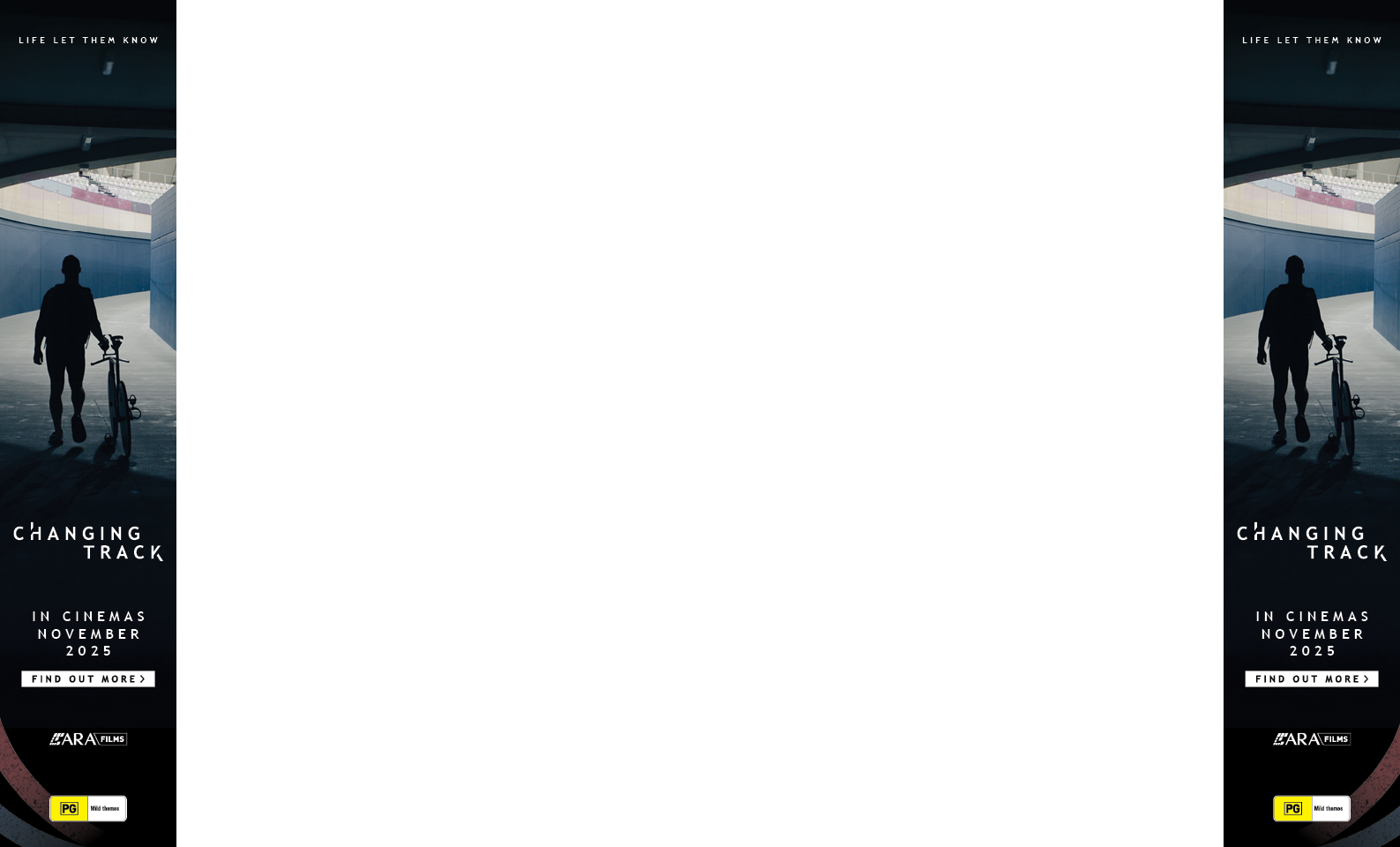by Damien Spiccia
Revelation Perth International Film Festival returned to brighten Perth’s cultural calendar in the guts of a dreary winter, when a cosy cinema among fellow film-lovers is as enticing as a piping-hot Chai. Spanning various venues but anchored at Luna Palace, this year’s edition, perhaps more than ever, seemed to carry a unifying thread of film as provocation, as resistance, or as Lars von Trier once put it, film as “the rock in the shoe.” That spirit was evident not just in many of the 200-plus selections programmed but in the festival itself, which has weathered almost three decades of change while persisting as a vital, open space for filmmakers to gather, challenge, and connect.
The feature selections crossed vast terrain, from heavy-hitters like Joshua Oppenheimer’s subterranean musical The End, Ari Aster’s COVID-anxiety Western Eddington, to the punky, anarchic disruptors we’ve come to expect from Revelation, such as Scarlet Blue, Pater Noster and the Mission of Light, WA-made Skeleton Girls, and the deliriously vibrant Lesbian Space Princess. Not to mention more reflective gems like the rural slow burn of The Smell of Burnt Milk, and festival opener U Are the Universe, a Ukrainian space romance that blended the cosmic melancholy of 2001, Solaris, and Red Dwarf into an existential cry for connection. Short films remained core to Revelation’s DNA, with a wealth of curated strands and the moving NAIDOC Week program The Next Generation: Strength, Vision and Legacy alongside pre-feature shorts throughout.
The documentary selection proved equally wide-ranging. Several featured public figures reckoning with complex legacies (Blue Road: The Edna O’Brien Story, Eno, The Extraordinary Miss Flower, Marlon Williams: Ngā ao e rua, Pavements), others confronted global crises (Of Caravan and the Dogs, Separated), while still others posed timely metaphysical questions (The Thinking Game, Starman). Eight Postcards from Utopia and TWST: The Things We Said Today spun absorbing archival footage into pervasive reflections on cultural memory. Some of the strongest docos mined cinema’s past to illuminate the present: essay-film Henry Fonda for President set Fonda’s career against the ruptures of American history, Exorcismo examined the impact of Spain’s controversial ‘S’ certificate in the chaotic aftermath of Franco’s death, and Chain Reactions presented five unique perspectives on The Texas Chainsaw Massacre and its lingering influence.
On Opening Night, festival director Richard Sowada spoke of the individuality of West Australian films, particularly their distinctive relationship to space – an observation strongly felt in the retrospective screenings of foundational WA classics Fran (1985) and Shame (1988). A touching Fran Q&A reunited former child actors Narelle Simpson and Rosie Logie; Simpson described being “emotionally smashed” rewatching the film as a parent, while Logie, now a social worker, noted that Fran’s issues remain strikingly relevant. With the imminent opening of Perth Studios, these screenings also powerfully demonstrated the resonant impact of local filmmaking. The Retrospective strand featured three glorious Wim Wenders restorations (Alice in the Cities, The American Friend), and an 80th anniversary screening of neorealist classic Rome, Open City, a scream in the face of fascism that still rings as urgent as ever.
Outside the cinema, Revelation’s commitment to fostering a screen community was clearly prioritised. Over 30 filmmakers were in attendance this year, including Adam C. Briggs and Sam Dixon, the duo behind the 8mm feature A Grand Mockery, who hosted a popular hands-on 8mm workshop. The complimentary “Industrial Revelations” sessions at Tribe Hotel provided a forum for crucial topics, from on-set safety and respect to pitching strategies, while the two-day “Revelation Academic” conference offered deeper critical dissection. Closing Night’s Get Your Shorts On event drew a raucous full house and showcased a slate of impressive homegrown shorts, capping another spirited season of a festival that embraces cinema’s unruly edges and refuses to play it safe.




